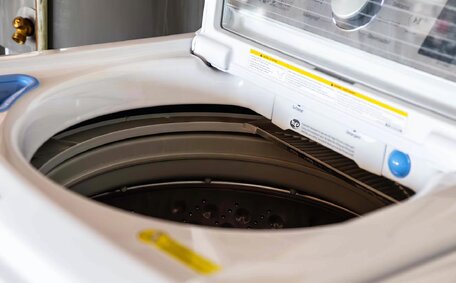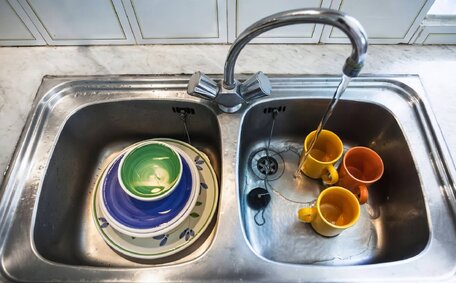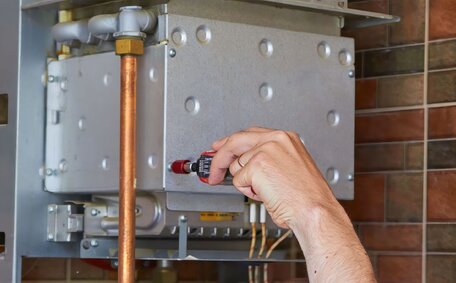Introduction to Hot Water Systems
Hot water systems are vital in Australian homes, varying in installation complexity, running costs, and energy efficiency. They supply hot water that is essential for bathing, washing, and other daily activities. When selecting the electric hot water system best suited to your home’s needs or considering an upgrade, it’s important to evaluate both energy efficiency and running costs.
The two most common types of systems for heating your water are gas vs electric hot water systems and heaters. Electric water heaters use electricity to heat water, whereas gas hot water heaters utilise natural gas or LPG. Within these broad categories there are various system types like storage water tanks, tankless water heaters, heatpump hot water systems, and solar water heaters.
This article will explore the differences between electric and gas hot water systems, focusing on efficiency, energy use, environmental impact, and longevity. We’ll offer insights to help homeowners in Parramatta choose the right hot water system to meet their needs, budget, and optimise your energy usage.
Comparing Installation Costs Between Electric and Gas
When it comes to installation costs, electric hot water unit heaters tend to be less expensive than gas systems. The average installation cost for an electric hot water tank system is around $1,500 AUD compared to $2,000 or more for a similar gas storage tank system.
Electric systems are less costly to install as they don’t require a gas line infrastructure.
Gas lines need to be properly sized, pressure tested, and sometimes run long distances to reach the water heater location.
Here’s a quick comparison of typical installation costs for common residential hot water systems:
- Electric storage tank: $1,000-$2,000 AUD
- Gas storage tank: $2,000-$3,000+ AUD
- Electric water heat pump: $2,000-$3,000 AUD
- Gas instantaneous: $2,500-$4,000+ AUD
Gas systems typically incur higher initial costs due to the required gas line installations, compared to their electric counterparts. However, though heaters cost more upfront and are more expensive initially, they can pay off over time with lower operating expenses. We’ll take a look at operational costs and efficiency comparisons later in this article.
Ongoing Operating Costs
When it comes to ongoing operating costs, both electricity gas hot water systems have expenses to consider. Electric systems, which have an element that heats water, have energy costs based on tariffs from your electricity provider, which may consume more energy. Similarly, gas water heaters result in monthly energy costs, with natural gas priced per megajoule (MJ) utilised.
Government figures from 2021 indicate an annual running cost of about $320 for electric storage tank systems; however, heat pump systems can offer more significant savings. When comes to annual energy costs, a comparable gas hot water heater storage tank averages around $290. Though gas is cheaper to operate per year, an electric heat pump system can achieve operating costs as low as $180 annually and is less expensive to run.
There are also some ways homeowners can reduce hot water energy expenses, including:
- Installing water efficient showerheads and taps
- Fixing any hot water pipe leaks
- Ensuring adequate insulation around tanks and pipes
- Setting thermostats only as high as needed
Over a 10 year period, total operating costs suggest that opting for electric pump systems could help homeowners save money, totaling just $1,800 in expenses. So while gas systems are less per year for storage tanks, heat pumps present the lowest long term costs for a water system your home.
Assessing Energy Efficiency Ratings
Energy efficiency ratings are a useful tool for comparing different hot water systems. Water heaters are rated on a 1 to 6 star scale, reflecting the system’s energy efficiency.
The minimum legal efficiency rating for new hot water systems, which one might consider, is 3 stars.
Standard electric storage tanks usually have an efficiency rating of approximately 3.5 stars, while standard gas storage tanks fare slightly better, averaging around 4 stars.
Below is a typical efficiency rating for various system types:
| Electric storage tank | 3.5 stars |
| Gas storage tank | 4 stars |
| Electric heat pump | 5-6 stars |
| Gas instantaneous | 4 stars |
Electric heat pump systems achieve top ratings for being more energy-efficient than conventional systems, coupled with their low running costs. They utilise less power overall compared to conventional electric resistance water heating. Within the limits of their climate range, heat pumps are often the most efficient choice over gas electric water systems.
Environmental Impact and Emissions
When considering electric and gas hot water systems, it’s essential to weigh their environmental impacts throughout their lifespan. This includes examining greenhouse gas emissions and sustainability factors.
Electric systems running on fossil fuel-generated grid electricity indirectly cause carbon dioxide and other greenhouse gas emissions at the power station. Gas systems also directly emit greenhouse gases like carbon dioxide and nitrous oxide as the fuel burns.
Data from the Australian Government shows that a standard hot water heat pump system emits about 1.3 tonnes of carbon dioxide annually from grid electricity. A comparable gas storage system emits around 1 tonne annually as the gas combusts. So electric systems might have a slightly higher environmental footprint initially, but in the long run, the difference can diminish with the use of renewable energy sources.
Using solar panels or renewable-source electricity, like wind power, with a heat pump provides electric systems with a carbon-neutral prospect. And innovations like heat pump technology also drastically improve the efficiency and sustainability of electric units compared to conventional resistance heating.
An efficient electric heat pump water heater can save over 15 tonnes of greenhouse gas emissions over 10-15 years compared to a standard gas storage tank, demonstrating better environmental performance. So, when it comes to technology improvements, electricity has the capability of overtaking gas for environmental benefits.
Maintenance Requirements
Maintenance is required for both electric and gas hot water systems to ensure safe and efficient operation. However, gas systems tend to require more frequent servicing than electric ones.
All storage type water heater units should be inspected annually to check for leaks, corrosion, sediment buildup and other issues. Gas systems also need their burners tuned up and pilot lights verified each year. Tankless instant hot water systems, which have a specific flow rate, may require descaling if mineral deposits accumulate.
Specific to gas heaters, especially continuous flow models, is the biennial or triennial checking of the anode rod.
Additionally, a worn-out anode rod or faulty pilot light will require replacement.
Excluding instant hot models, gas systems require vigilant maintenance to prevent carbon monoxide leaks. Their exhaust vents and gas lines should be checked to ensure there are no blockages or breaks that could allow CO to escape. You can install CO detectors for extra safety.
Consistent maintenance is crucial for the efficiency, longevity, and safety of all hot water systems. However, gas heaters demand more comprehensive annual maintenance than electric ones, which may sometimes necessitate urgent servicing. An experienced Parramatta Plumbing technician can inspect either type and perform necessary maintenance to keep it running reliably for years to come.
Rebates and Incentive Programs
There are several rebates and incentive programmes available in the Parramatta and greater Sydney area for installing energy-efficient hot water systems.
The NSW government offers the Appliance and Equipment Energy Savings Scheme which provides discounts on installing heat pump or solar hot water systems. Rebates up to $500 may be available, depending on how much energy your new system conserves.
The federal government also has a Small-scale Renewable Energy Scheme that offers rebates for solar hot water system installation. Amounts vary based on factors like climate zone and system size.
Contact the team at Parramatta Plumbing to ask about any current rebates or incentives we can pass on to enhance your hot water system with a new efficient electric or gas model.
Upgrading to a high-energy-rated system, such as a heat pump or solar water heater, can result in long-term savings and environmental benefits. Take advantage of available rebates to help offset that initial purchase cost.
Call 1300 349 338 or email jobs@parramattaplumbingservices.com.au to learn more about the rebates and incentives you may qualify for on a new hot water system installation.
System Longevity and Replacement Intervals
When comparing lifespan and replacement timelines, understanding the pros cons of each system is crucial – electric water heater systems generally last longer than gas water heaters. Electric storage tanks typically last between 10-15 years, whereas gas storage tanks have a shorter lifespan, averaging 8-12 years.
With regular maintenance, electric instant hot water systems can perform reliably for over 20 years. Gas tankless units may last 15-20 years on average. Heat pump and solar water heaters, known for their efficiency, typically require major repairs after 15-25 years.
The slightly shorter lifespan of gas systems is due to more extensive annual servicing requirements and internal components being exposed to combustion byproducts over time. However, newer condensing gas models can endure more than electric water systems in some cases.
The longevity of water heaters, irrespective of fuel type, relies greatly on maintenance and water quality. Replacing anodes regularly in tank systems and descaling heat exchangers in tankless units is vital. And in hard water areas, a water softener prolongs system life. Contact Parramatta Plumbing if you need guidance maintaining your hot water system.
Tips for Choosing the Right System
When deciding between an electric or a gas water heater for your home, keep these tips in mind:
- Consider installation and operating costs - Electric systems have lower upfront installation costs, while gas systems can have lower ongoing energy expenses.
- Check the efficiency ratings - Heat pump electric systems are the most efficient with 5-6 star energy ratings.
- Weigh environmental impacts - Electric systems paired with solar power or heat pumps have the lowest carbon footprint.
- Evaluate maintenance needs - Gas systems require more frequent servicing than electric ones.
- Ask about available rebates on energy efficient systems in the Parramatta area to help offset purchase costs.
- Compare lifespan and replacement intervals - Electric systems generally last 2-3 years longer than gas.
- Install low-flow water fixtures to reduce hot water consumption and save on energy bills.
For many households, electric heat pump systems are the standout choice for cost-effectiveness among hot water options. Contact the expert team at Parramatta Plumbing on 1300 349 338 for personalised advice on choosing your ideal hot water system.






